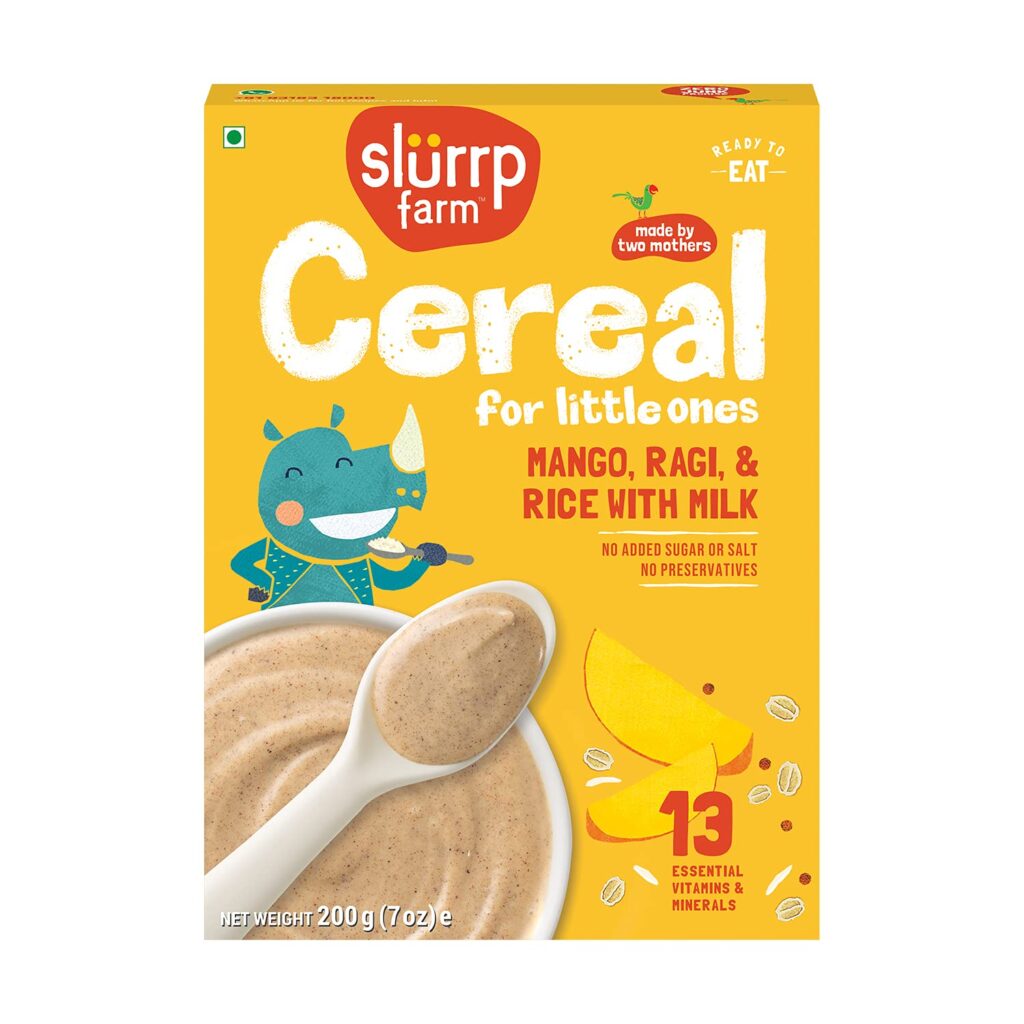Baby food refers to specially prepared and packaged food items that are suitable for infants and young children. It is designed to provide the necessary nutrients for a baby’s growth and development in a form that is easy for them to consume. Baby food is typically introduced to a baby’s diet when they start transitioning from a solely milk-based diet to solid foods, which usually occurs around 4 to 6 months of age.
Baby food comes in various forms, including purees, mashed foods, and small, soft, easily chewable pieces. The food is often made from fruits, vegetables, grains, and meats, and may be commercially produced or homemade. Commercial baby food is widely available in supermarkets and typically comes in jars, pouches, or trays.
When selecting baby food, it is important to consider the age and developmental stage of the child. The food should be appropriate for their level of chewing and swallowing ability. It is also essential to choose foods that are safe and free from any potential allergens or choking hazards. Many baby food products are labeled with age recommendations to help parents make appropriate choices.
It’s worth noting that some parents prefer to make their own baby food at home using fresh ingredients, as it allows them to have more control over the ingredients and flavors. However, whether store-bought or homemade, the key consideration is to ensure that the baby food is nutritionally balanced and meets the dietary needs of the growing child. Consulting with a pediatrician or a registered dietitian can provide additional guidance on introducing and selecting appropriate baby foods.
Slurrp Farm Cereal, Ragi, Rice and Mango with Milk, Instant Healthy Food, NO Sugar NO Salt, Made with Natural Grains and Dates Powder, 200 g
| Price: |
₹331.55 (₹165.78 / 100 g) |
| Inclusive of all taxes |
- No sugar No salt, mildly sweetened with dates powder
- Powered with supergrain, sprouted ragi has 10x the calcium of wheat and rice, great for growing bones, fortified with iron, vitamins and minerals
- Made with millets which by definition is an organic grain
- No maida, no trans fats, no preservatives. 100% natural: contains real mango fruit. No artificial colours or flavours
- Instant Cereal – Just add hot water and mix, the cereal is ready
- Honest and healthy food made by Two Mothers
Product information
Additional Information
| ASIN | B07VQ8KJGF |
|---|---|
| Customer Reviews |
4.1 out of 5 stars |
| Best Sellers Rank | #252 in Grocery & Gourmet Foods (See Top 100 in Grocery & Gourmet Foods) #3 in Children’s Cereals |
| Date First Available | 28 July 2019 |
| Manufacturer | Slurrp Farm |
| Item Weight | 200 g |
| Item Dimensions LxWxH | 15 x 3 x 15 Centimeters |
| Generic Name | Organic Baby Cereal | Ragi, Rice and Mango With Milk | Instant Healthy Wholesome Food For Babies |
When introducing solid foods to a baby at around 6 months of age, it’s important to start with simple, easily digestible foods and gradually expand their diet. Here are some suitable options for baby food at 6 months:
- Single-ingredient purees: Start with smooth, pureed foods made from a single ingredient. Common choices include mashed bananas, mashed avocado, pureed sweet potatoes, or pureed carrots. These foods are easy to digest and provide essential nutrients.
- Iron-rich foods: At 6 months, babies’ iron stores begin to deplete, so it’s important to introduce iron-rich foods. Pureed meats such as chicken, turkey, or beef are good options. You can also offer pureed legumes like lentils or beans.
- Cereal: You can introduce baby cereal, such as rice cereal or oatmeal, mixed with breast milk, formula, or water. Start with a runny consistency and gradually thicken it as your baby gets used to it.
- Soft fruits and vegetables: As your baby becomes more comfortable with eating, you can offer soft fruits like mashed or pureed apples, pears, or peaches. Cooked and mashed vegetables such as peas, squash, or broccoli can also be introduced.
- Yogurt and cheese: Plain, whole-milk yogurt or soft, pasteurized cheese can be offered as long as there are no known dairy allergies. These dairy products provide calcium and protein.
Always remember to introduce new foods one at a time and wait a few days before introducing another new food. This helps identify any potential allergies or sensitivities. Additionally, make sure to consult with your pediatrician for personalized recommendations and guidelines based on your baby’s specific needs and development.
Determining the “best” baby food can depend on various factors, including your baby’s individual needs, preferences, and any dietary restrictions they may have. However, there are several reputable baby food brands that offer nutritious and high-quality options. Here are a few well-known brands that are often recommended:
- Earth’s Best Organic: Earth’s Best offers a wide range of organic baby food products made from high-quality ingredients. They provide a variety of purees, snacks, and meals suitable for different stages of a baby’s development.
- Gerber: Gerber is a well-established brand known for its baby food products. They offer a diverse selection of purees, cereals, snacks, and meals for babies and toddlers. Gerber also provides options for specific dietary needs, such as organic, gluten-free, and allergen-sensitive options.
- Beech-Nut: Beech-Nut is another popular brand that focuses on using natural and wholesome ingredients in their baby food products. They offer a range of purees, organic options, and snacks made without artificial additives or preservatives.
- Happy Baby Organics: Happy Baby Organics specializes in organic baby food products made with carefully selected ingredients. They provide purees, snacks, pouches, and cereals that are nutritionally balanced and free from artificial colors and flavors.
- Plum Organics: Plum Organics offers a variety of organic baby food options, including purees, puffs, and teething wafers. They emphasize using organic ingredients and provide choices suitable for different stages of a baby’s development.
It’s important to note that while commercial baby food brands can be convenient, many parents also choose to make their own baby food at home using fresh ingredients. Homemade baby food allows for greater control over the ingredients and flavors, and it can be a cost-effective option. However, whether store-bought or homemade, always prioritize your baby’s nutritional needs and consult with your pediatrician for guidance on introducing and selecting the best baby food for your little one.


